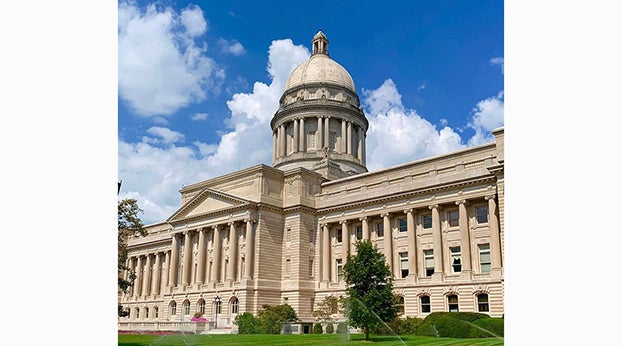215 bills passed as General Assembly wraps up
Published 2:00 pm Thursday, April 18, 2024
It was quiet in the House and Senate chambers on Tuesday, as members of the General Assembly wrapped up their 60-day session Monday evening, or to use legislative parlance, “adjourned sine die.”
The proceedings capped off a relatively conventional year for the legislature. One that started with a gradual pace but picked up steam in the second half amid a flood of proposed legislation.
Lawmakers filed more than 1,200 bills this year, the highest number in more than two decades, and passed around 215 before the session drew to a close. More than two dozen of those received a vote on the final day.
Throughout the session, the House and Senate found plenty of issues to debate, including the budget, education, housing, elections, guns and even the official state rock. Big data and artificial intelligence got the attention of lawmakers this year, as did questions over the future of nuclear energy in Kentucky.
But few bills garnered more attention than House Bill 6, the $128 billion budget plan for the state executive branch. It was among several major budget bills that will also fund community projects, transportation and the judicial and legislative branches of government over the next two years.
Some corrections to HB 6 had to be made, so Senate Bill 91, which started its life as a measure to require at least one regional driver licensing facility in each of the 38 Senate districts, became the sacrificial lamb on the final day of the session. SB 91 was stripped of its original contents and the corrected HB 6 inserted. The move made what was originally a three-page bill with four sections grow into a 29-page document with 81 sections.
The final version is at https://apps.legislature.ky.gov/recorddocuments/bill/24RS/sb91/bill.pdf.
One of the bills that didn’t make it all the way through the process was HB 509. The Kentucky Press Association (KPA) fought the measure vehemently, describing it as a bill saying that any communications done on private devices are not subject to open records laws, even if those communications are about government business.
KPA attorney Michael Abate, appearing before a Senate committee in March, said they opposed every version of HB 509 starting with the original House one, but a Senate committee substitute made it even worse. “This law doesn’t enhance transparency; it destroys it in a very un-American way, where the citizens of Kentucky will no longer have access to records that they’ve had for 40 years.”
The committee ended up scrapping the substitute, and going back to the House version, but the bill never reached the Senate floor.
As has been the case throughout the 60-day session, legislation that reaches Gov. Andy Beshear’s desk can be signed, vetoed or allowed to become law without his signature. However, unlike when lawmakers were in session and could vote to override any veto with a simple majority in both chambers (and did so in every case), the governor will have the final say on any vetoes, as the 2024 General Assembly has adjourned sine die.







